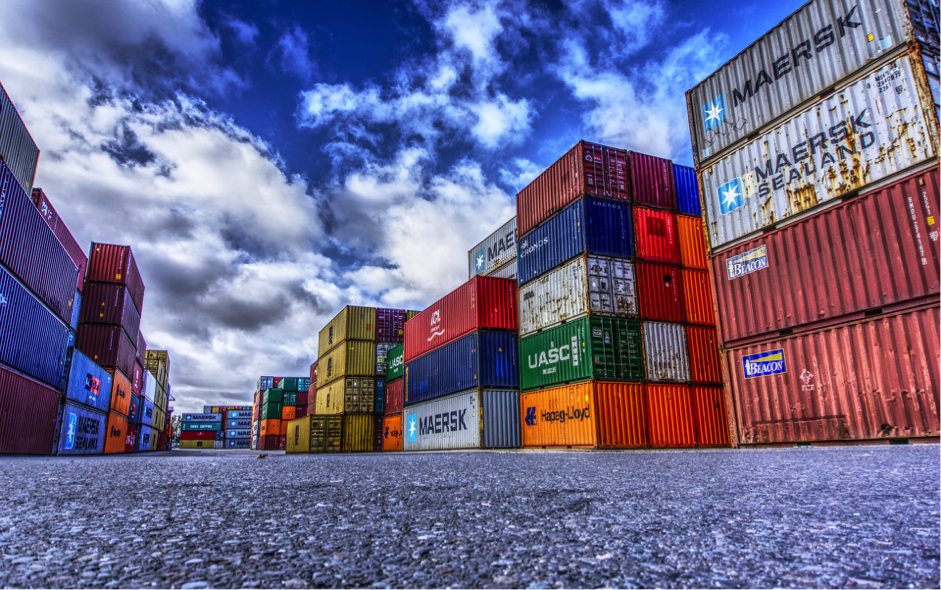The shipping sector has been around for centuries, providing goods to local and global markets. Even though the sector has developed vastly over time, certain inefficiencies associated with it still remain. Fortunately, the emergence of a new technology called smart containers is helping to reduce those inefficiencies and revolutionize the entire shipping sector.
In this blog, we’ll explore how smart containers are helping to reduce inefficiency in the shipping sector and how they can benefit businesses and consumers alike.
Smart Container
Smart Containers are smart, connected, and integrated solutions that enable the seamless, secure, and efficient transfer of goods in the container transport industry. By integrating a range of technologies, such as sensors and tracking systems, they provide real-time information on the location and condition of goods while they are in transit. They are mostly used in the transport of food and pharmaceuticals, as they are able to monitor and maintain temperatures while reducing spoilage.
Overview of Inefficiencies in the Shipping Sector
The shipping sector is plagued by numerous inefficiencies, including costly delays, lack of visibility and transparency throughout the supply chain, errors and mistakes leading to damaged goods, theft or loss of cargo, and more. These issues can lead to significant financial losses for shippers and logistics companies, as well as headaches for customers.
Furthermore, inefficiencies can also lead to increased pollution and energy use due to inefficient routing, which has a negative impact on the environment. For example, trucks and ships that are not using the most efficient routes can end up burning more fuel, leading to increased carbon emissions.
Also, as global shipping is projected to increase significantly in the coming years, it is important to ensure that the shipping sector remains efficient and sustainable.
How Smart Containers Reduce Inefficiency
These are the following ways in which smart containers reduce inefficiency:
- Enhanced Visibility
Smart containers provide real-time data on the location, condition, and status of goods in transit. This allows shippers and logistics companies to better plan and manage their operations, as well as provide customers with real-time updates on the status of their shipments. For instance, shippers can track their goods in real-time and reroute them to avoid delays or detours. This not only reduces the risk of goods being damaged or lost but also enables shippers to avoid costly delays.
- Improved Security and Safety
The use of smart containers helps ensure that the goods are secure and safe throughout the shipping process. The sensors included in these containers can detect temperature variations, tampering or theft, and other anomalies. This allows shippers to take the necessary steps to ensure that their goods are safe from theft or damage.
- Reduced Pollution and Energy Use
Smart containers help reduce emissions and energy use by optimizing routes, using more efficient vehicles, and even helping shippers identify the most fuel-efficient vessels for the transportation of their goods. By reducing pollution and energy use, smart containers help make the shipping sector more sustainable. Considering the global drive towards sustainability, smart containers are beneficial for both businesses and the environment.
4 Increased Efficiency
Smart containers enable shippers and logistics companies to streamline their operations and reduce costs by eliminating the need for manual processes such as paperwork and data entry. Furthermore, they also help improve operational efficiency by automating processes such as order tracking, billing, and inventory management. For instance, smart containers can be programmed to automatically send shipment updates to customers, thus improving customer satisfaction.
- Cost Savings
By eliminating costly delays, improving security, reducing pollution, and streamlining operations, smart containers help businesses save money in the long run. In addition to this, by providing more accurate data on the status of shipments, they also enable shippers to offer more competitive prices to customers.
Potential Drawbacks of Smart Container Technology
While it is clear that smart containers offer numerous benefits, they are not without their drawbacks. The following are some potential challenges to consider:
- High Initial Cost
Smart containers tend to be more expensive than traditional shipping containers, and the cost of setting up an infrastructure can be a major obstacle for companies looking to adopt this technology. Furthermore, businesses may also have to invest in personnel training and additional software or hardware.
- Lack of Regulation
Smart containers are still relatively new, and there is currently no universal standard for their design or operation. This can lead to issues such as compatibility problems between different systems, or a lack of compliance with regulations.
- Privacy Concerns
The data collected by smart containers can be used to track shipments, but there are also potential privacy concerns. Companies must ensure that the data collected is secure and not shared with unauthorised third parties.
Conclusion
Smart container technology has the potential to revolutionise the shipping sector by reducing inefficiencies and increasing efficiency, security, and sustainability. It offers numerous advantages such as enhanced visibility, improved security and safety, reduced emissions and energy use, increased efficiency, and cost savings. However, this technology also comes with some challenges. Notwithstanding, smart containers have the potential to make a positive impact on the shipping sector and should be seriously considered by companies looking to reduce inefficiencies and increase efficiency.
